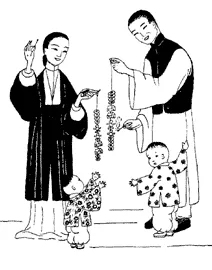
Benedict the Moor: A Saint of Humility and Service
Benedict the Moor, also known as Benedict the Black, is a revered figure in Christian history, known for his humility, dedication, and unwavering faith. Born in 1526 in Castelvetrano, Sicily, to a poor African slave, his journey from humble beginnings to sainthood is both inspiring and noteworthy.
Early Life
Benedict was born to a family of mixed heritage—his father was a Spanish nobleman and his mother an African slave. As a child, he faced challenges due to his ethnicity and social status, but these obstacles did not deter him from seeking a spiritual path. At an early age, he was drawn to the teachings of Christianity and spent much of his youth in prayer and meditation.
His Call to Religious Life
At the age of 18, Benedict felt a calling to enter the religious life. He initially sought admission to a nearby monastic community but was initially turned away because of his background. Undeterred, he eventually found a welcoming home with the Order of the Friars Minor, founded by St. Francis of Assisi.
Service and Humility
Throughout his life as a friar, Benedict was known for his service to the community. He dedicated himself to the poor, the sick, and those marginalized by society. His humility was evident in his daily actions, as he often took on menial tasks that others would avoid. He exemplified the Franciscan spirit of poverty and love for all, regardless of race or social status.
Miracles and Legacy
Many accounts of miraculous events surrounded Benedict. He was said to have the gift of healing and could work miracles through prayer. His reputation for holiness drew many to seek his guidance. His life’s work left a profound impact on the communities he served, fostering greater acceptance and love among people of different backgrounds.
Canonization and Feast Day
Benedict the Moor was canonized by Pope Pius VII in 1807, recognizing his contributions to the faith and the love he showed to all. His feast day is celebrated on April 4th, a day dedicated to honoring his life and the virtues he embodied.
Benedict the Moor Today
Today, Benedict the Moor is recognized not only as a saint but also as a symbol of racial harmony and social justice in the Church. His life story is a powerful reminder of the importance of humility, service, and love for one another. His legacy continues to inspire many, particularly in discussions around race and equality in the Christian faith.
Conclusion
In conclusion, Benedict the Moor stands out as a beacon of hope and an advocate for the disenfranchised. His unwavering faith, coupled with his commitment to humility and service, makes him an essential figure in the Christian tradition. Recognizing his contributions encourages believers to follow in his footsteps, fostering a spirit of unity and love in our diverse world.






